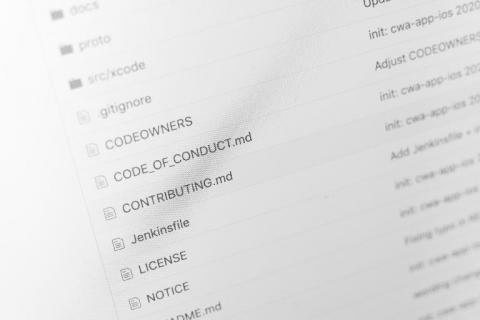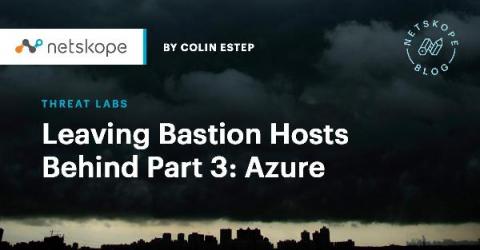Security | Threat Detection | Cyberattacks | DevSecOps | Compliance
%term
O365 Phishing Attack Used Real-Time Validation against Active Directory
A phishing attack used real-time validation against an organization’s Active Directory in order to steal users’ Office 365 credentials. According to Armorblox, the phishing attack targeted an executive working at an American brand that was named one of the world’s Top 50 most innovative companies for 2019 on a Friday evening.
Cryptocurrency exchange Eterbase hacked, $5.4 million worth of funds stolen
European cryptocurrency exchange platform Eterbase has announced that it has suffered a security breach which saw malicious hackers access its network and steal funds worth US $5.4 million. In a message posted on Telegram, the Slovakian cryptocurrency exchange listed the six hot wallets plundered by cybercriminals for their Ether, Tezos, Bitcoin, ALGO, Ripple, and TRON riches.
Achieving CI Velocity at Tigera using Semaphore
Tigera serves the networking and policy enforcement needs of more than 150,000 Kubernetes clusters across the globe and supports two product lines: open source Calico, and Calico Enterprise. Our development team is constantly running smoke, system, unit, and functional verification tests, as well as all our E2Es for these products. Our CI pipelines form an extremely important aspect of the overall IT infrastructure and enable us to test our products and catch bugs before release.
How to Scan GitHub Repositories for Committed Secrets and other Code Snippets
In 2019, GitHub estimates that over 44 million repositories were created, and over 10 million new developers joined the platform. This comes as no surprise, as GitHub is the world’s largest host of source code. With that designation comes a substantial volume of committed code.
5 steps to improve cyber security as your employees return to the workplace
During the COVID-19 pandemic, more UK employees have worked from home than ever before. According to a YouGov survey, around one in five people went from never working from home to doing so constantly. Coronavirus and the resulting lockdown have significantly increased cyber security risks for organisations, with many lacking sufficient controls to protect workers outside the workplace. This has been compounded by threat actors seeking to exploit the crisis.
What is Incident Response?
As new types of security incidents are discovered, it is absolutely critical for an organization to respond quickly and effectively when an attack occurs. When both personal and business data are at risk of being compromised, the ability to detect and respond to advanced threats before they impact your business is of the utmost importance.
What you need to know about securing your APAC business and the recent data law changes
Data breaches are growing in frequency and intensity amidst the recent Coronavirus pandemic, having increased by nearly 273% in the first quarter compared to the same time frame last year. In fact, 2020 may very well be remembered as the year when cybersecurity became a business problem rather than a technology issue. The driving factor here is the recent shift in workforce culture. More and more organizations are now setting up remote working teams.
Leaving Bastion Hosts Behind Part 3: Azure
This post is the third in a series about alternatives to bastion hosts in each of the major cloud providers. The first post covered an introduction to bastion hosts, the SSH multiplexing attack, some disadvantages to managing your own bastions, and an alternative solution in GCP. The second post covered the Session Manager service provided by AWS.
Meeting the Challenges of Remote Work with Chrome OS Policy Settings - Part II
Welcome to the second part of this two-part blog series for administrators who are new to the Chromebook enterprise system. In the previous blog, we discussed settings that are applicable to users and applications. In this blog, we will further explore the Chrome enterprise admin panel as we look into settings that pertain to privacy and physical devices. Device Settings Device settings apply to the physical Chromebook device. They are enforced no matter which user is logged in.








